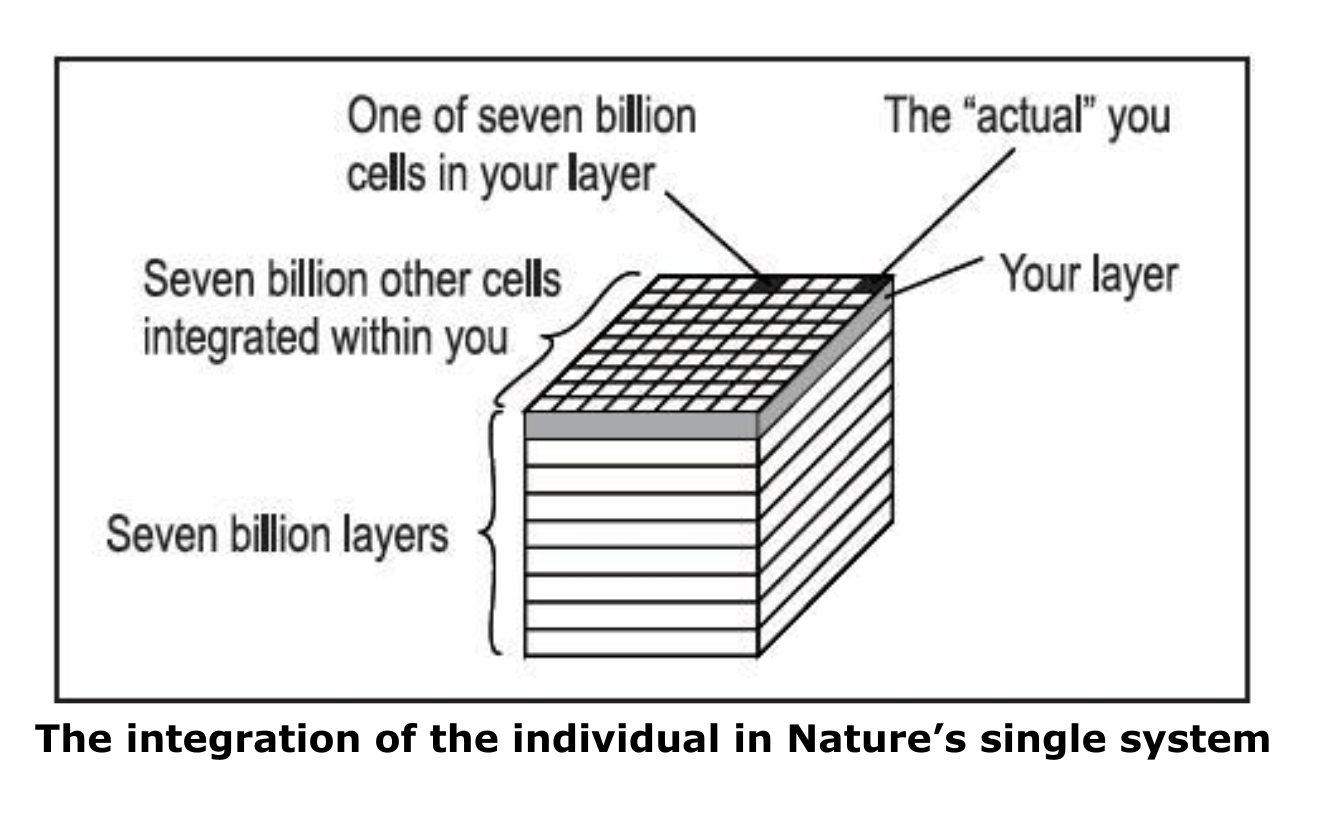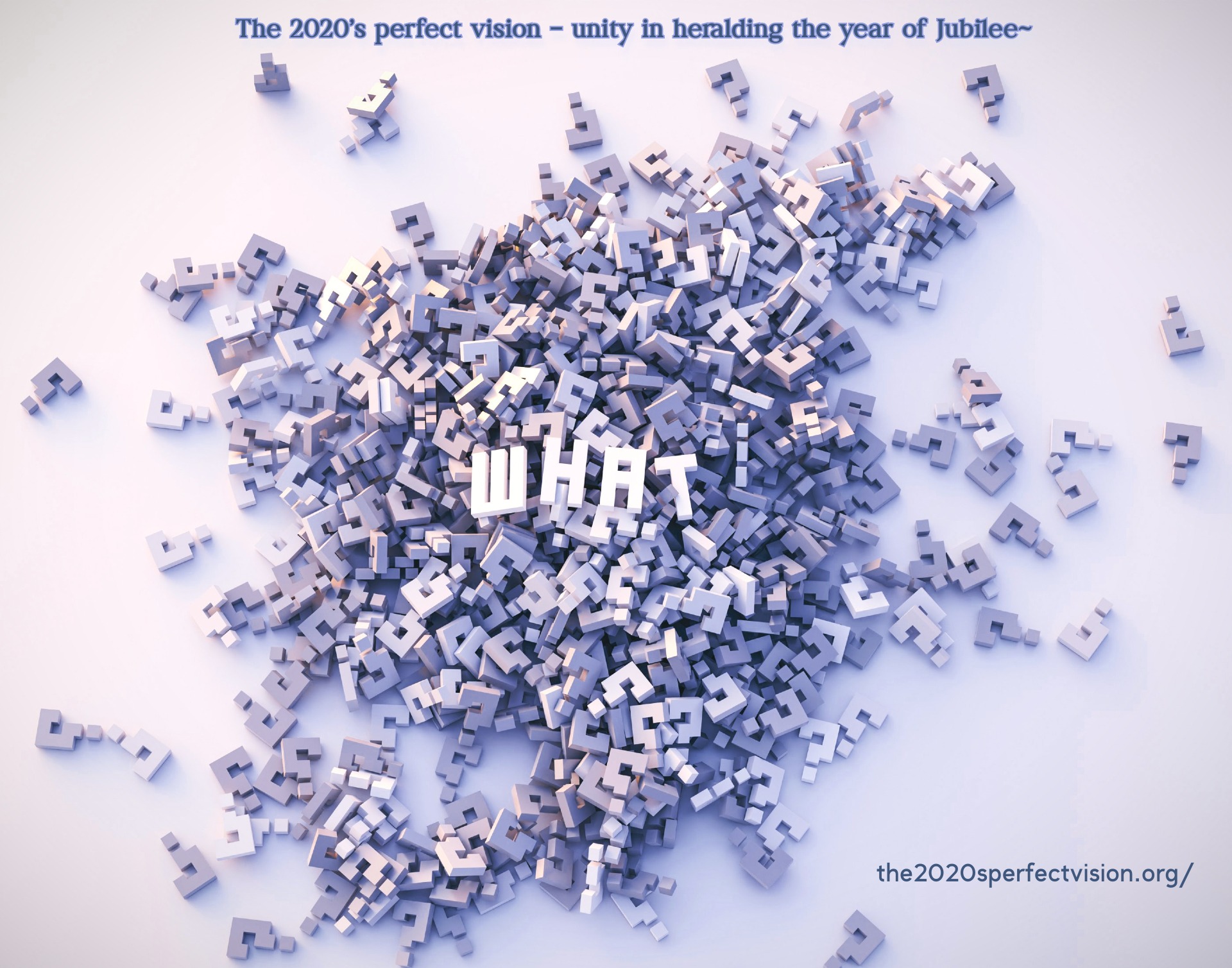WHAT SHOULD WE DO?
We need to start thinking about the benefits of reaching equilibrium with Nature’s force, recognizing that a positive future depends on that. We must focus our thoughts on being parts of a single, integrated system that contains all people wherever they are, and begin to relate to others accordingly.
A correct, altruistic attitude toward others means directing our intentions, thoughts, and concerns to the wellbeing of others. When our thoughts are aimed toward others, we wish everyone to receive all that they need for their sustenance. However, beyond physical wellbeing, we should focus our power of thought on elevating others’ level of awareness. We must want every single person to feel part of the whole, and to function accordingly.
This is first and foremost an internal work, at the level of thought. It is important to contemplate this thought, and not let it out of our minds. We should ascribe such thoughts great importance, since our happiness and wellbeing depend on them. It is through them that we will be saved from our problems and adversities. At first, it may seem abstract, but a positive future depends precisely on that, and only on that.
Besides the internal altruistic attitude toward others—at the level of thought—we can also perform altruistic actions toward them: we can share our knowledge about the purpose of life and how to reach it. If we confer that knowledge on others and they become partners in the awareness of the problem, if they have the same thoughts and the same mindset concerning the solution, then we have prompted a positive change in the one system of which we are all part. As a result, our awareness will intensify even more, and we will immediately experience positive changes in our lives.
A single person who changes his or her attitude toward others induces change in the whole of humanity. In fact, we can picture the relationship between the individual and humanity in the following manner: You and all humankind are part of a single system. However, the other members of humanity are completely dependent upon the way you operate them. The whole world is in your hands. This is how reality is arranged for every single person.
To understand this, let us picture a cube with about seven billion layers, approximately the number of people on Earth. Each layer stands for one person and is operated by that person. Within each layer, there are seven billion cells, one of which is you. The rest of the cells symbolize the incorporation of the other people in you. This is how Nature’s single system is built. In other words, every person is integrated into all the other people; hence, we are all tied to one another.

If you correct your attitude to even one of the other cells in your layer, you have awakened your own part in the other. This creates a positive change in that individual, which brings one closer to wanting to correct one’s attitude toward others.
And that change affects more than just that one person. It affects that person’s entire level, including all the other cells with which one is integrated. Moreover, each of the other cells has its own layer in the cube, and that layer, too, is now awakened.
In fact, when a single person corrects his or her attitude toward others, this instigates a chain of events, a process of unconscious, positive changes in the awareness of all people. Such interactions between layers in the cube promote all of humanity toward correction and wholeness.
We should keep in mind that at the moment, humanity is in contradiction to the altruistic Nature. Hence, even if we have made the slightest change at all, we have brought humankind just a little closer to balance with Nature. The increased balance means reduced imbalance, and along with it, reduction of negative phenomena.
Although people who have not corrected their attitude toward others will not feel it yet, those who induce this change will sense it immediately. Thus, the more we pursue these thoughts and actions to increase our awareness that we are parts of a single system, the sooner we will feel that we are living in a welcoming world, a joyful and good place.
Man’s power of thought and his crucial impact on reality are expressed in the following words of the great Kabbalist, Rabbi Abraham Isaac HaCohen Kook (manuscript, p. 60): “It requires much accustoming to feel the power of life and the reality of the power of thought, to know the might of the concept and the enforcement of life, and strength of the reality of the thought. And by awareness, to understand that the more the thought ascends, refines, and polishes, man and the world ascend, refine, and polish. And all sides of reality, which are always below the power of thought, their ascents and descents depend on the ascent and descent of man’s power of thought.”
When one’s thought rises, and he or she is rewarded by correcting one’s attitude toward others, one acquires new aspirations:
- Kesef (money) comes from the word Kisuf (longing). This pertains to one’s desire to acquire others’ desires and care for their satisfaction, much like a mother tending to her children and enjoying providing for their needs.
- Respect—one respects every person and treats all as partners.
- Knowledge—one wishes to learn from every person so as to understand what others need, to bond with them and thus reach equilibrium with Nature. As a result, one is granted the understanding and the sensation of the altruistic thought that encircles reality: Nature’s thought. This is the entrance to the highest degree in Nature, the perfection.
MUCH EASIER THAN IT SEEMS
The correction process, in which we change our source of pleasure from enjoying egoism to enjoying altruism, at first seems quite complicated. But reality is quite unlike its initial impression. In “Peace in the World,” Baal HaSulam says: “At first glance, the plan seems imaginary, as something that is above human nature. But when we deeply delve into it, we will find that the contradiction from reception for oneself to bestowal upon others is nothing but a psychological matter.”
The term “psychological matter” does not mean that it is a problem to be solved by therapists; rather, it indicates that the problem is with our internal attitude toward how we enjoy. We are used to deriving pleasure from egoistic fulfillments; it is hard for us to grasp that it is even possible to enjoy in some other way.
It seems easier to us to go along with the ego as it is without correcting it—to idle away and be carried by the streams of life, the “que sera sera” approach to life. But the truth is quite different. Although we are unaware of it, our ego, the one we so trust and rely on to always lead us to our optimum state, is not really “us.” Rather, the ego is like a tyrant who sits within us and subjugates us to its demands. We have simply gotten used to thinking that these demands are our demands, and that our ego works to our benefit.
We need to recognize the ego as dominating us without asking if we are interested in that dominion, as tricking us and working within us as if we want certain things, when it is actually the ego that wants them. When we realize the amount of effort and energy it costs us to carry out the ego’s demands of us, and the miniscule reward we receive for this tremendous effort, we will treat the ego, in its present, uncorrected form, as the worst of all tyrants.
Baal HaSulam says that if people compared the effort they make with the pleasure they actually experience in life, they would discover that “…the pain and suffering they endure to attain their sustenance is many times greater than the little pleasure they feel in this life” (“Introduction to The Study of the Ten Sefirot,” item 3). However, this fact is hidden from us.
Our ego hides itself and clothes itself within us, as if we and it were the same. Time and time again, it impels us to aspire to egoistic pleasures. However, in truth, our essence is merely a desire to enjoy, not an egoistic desire to enjoy, as it may seem to us. In other words, “our” ego is not really our ego, and we should distinguish between the two.
In the moment one makes that distinction and wants to acquire the quality of altruism to balance with Nature, one immediately feels Nature’s positive support. We should also note that there is a big difference between making an effort towards egoistic actions, and making an effort towards altruistic actions. Once an individual acquires Nature’s quality, the altruistic actions one performs no longer require energy and effort. On the contrary, they are performed with ease and comfort, bringing sensations of elation, exhilaration, and satisfaction.
Actually, altruistic actions do not require energy; they produce it. The reason is that an altruistic force acts like the sun, which emits light and is a constant supplier of virtually unending energy. The egoistic force, however, always wants to receive and to acquire; hence, it is always in deficit.
One can compare this phenomenon to the positive and negative poles in an electric battery. The minute one identifies oneself with the positive force, one feels energized and filled with unending capabilities. One becomes like an endless spring that creates and releases infinite energy from within itself.
Hence, as Baal HaSulam said, the problem facing us is merely psychological—to become detached from egoistic calculations, which only seemingly benefit us, and switch to altruistic calculations. In this manner, we are guaranteed that our will to receive will experience immediate and unlimited pleasure, since real and complete pleasures are found in altruistic bonding with others.
-Rav Michael Laitman (2006). From Chaos to Harmony: The Solution to the Global Crisis Acording to the Wisdom of Kabbalah. Laitman Kabbalah Publishers.


science at its core is alturistic and moral.